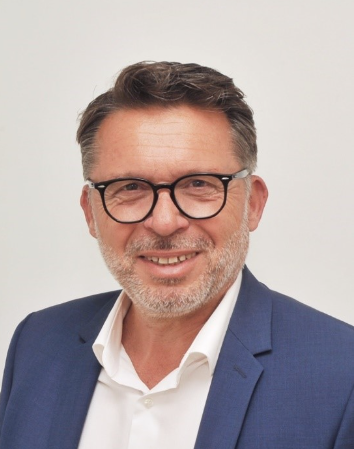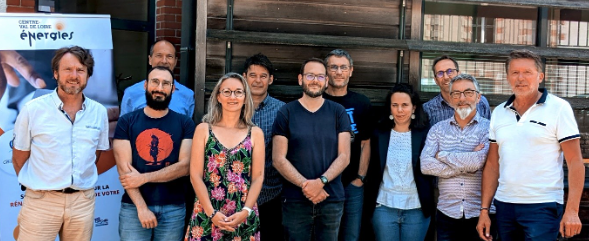
As part of a series of portraits of energy renovation players, today we meet Luc Monin, Managing Director of Centre-Val de Loire Énergies.
Please introduce yourself and outline your career. How did you become Managing Director of Centre-Val de Loire Energies?
Luc Monin, I’m 57 years old. I trained as a thermal engineer and I have a passion for energy. After holding a number of management positions in energy service companies, I became Managing Director of the company as soon as it was set up. The Board of Directors tasked me with creating and developing the company’s business in line with the pre-configuration study carried out by Energies Demain.
Can you present your company to us?
Centre-Val de Loire Energies was created on 8 June 2020. It is a semi-public company whose majority shareholder is the Centre-Val de Loire Region. Our offices are in Blois. Our mission is to help homeowners in Centre-Val de Loire with their energy renovation projects. We work on single-family homes and condominiums. Our offering includes technical services (audit and support with renovation work) as well as financial ones (advance payment of grants and loans to finance the work). These two facets are complementary, enabling households to contemplate deep energy-efficient renovation projects with peace of mind.
The team currently consists of 12 people. Most of them joined the company after a career shift, which means we benefit from a wide range of professional backgrounds.
What are the typical profiles of the households you provide support for?
The households we provide support for are mainly owners of single-family homes with a middle-to-upper income. The majority of projects take place at the time of purchase for households in their forties. For older households, the trigger is either when their children leave home or when they retire.
What are the specific features of the renovation projects carried out by (very) vulnerable households?
In our region, very vulnerable households benefit from specific support provided by specialist operators. As a result, we have no contact with these households.
How many and what types of energy renovation projects have you supported since the creation of the company?
We only carry out deep renovation projects delivering energy savings of at least 55%. Since mid-2021, when we first started working with households, we have completed or are in the process of completing 150 projects.
The average budget per energy renovation project is €55,000 (including tax) for single-family homes.
What do your customers value most? Why do they choose your company?
Our service offering is unique in the Centre-Val de Loire region. We are the only company addressing both the technical and financial aspects of a renovation project. And being a Public Energy Renovation Service, our clients know they will benefit from every guarantee of independence and reliability.

L’équipe de Centre-Val de Loire Energies
Le site internet : www.cvdl-energies.fr
What have been the milestones in your company’s development?
The company was set up during a COVID lockdown period. One of the milestones was the day we were finally able to work together in the same premises.
Obtaining our RGE (“recognised environmentally-friendly”) certification and the authorisation from the Banque de France to provide loans were also two important steps in being able to extend our services to local households.
Since 2022, we have become the Region’s leading service provider for deep, energy-efficient renovation projects, which adds to our reputation.
What are your plans for the coming years?
In 2024, the main developments will be the provision of a new personal accompaniment offer known as Accompagnateur Rénov’ and the possibility to grant ECO-PTZ interest-free loans.
What measures could help you promote energy-efficient renovation in your area?
I think that one of the keys to massively increasing energy-efficient renovation lies in local authorities taking on all or part of the role of project manager or project owner delegate and liaising with Accompagnateur Rénov’ advisors, so that households are fully relieved of all the technical and financial aspects of their renovation project.
What advice would you give to future companies, whether public or private, who want to develop the same integrated energy renovation service?
The energy renovation environment is largely influenced by regulatory constraints and subsidy schemes. It’s a fast-moving world, with very short timeframes, whereas energy renovation requires a long-term vision.
This is why any company interested in developing such a project must have medium- to long-term objectives, as well as an operational structure capable of adapting to constant change.
